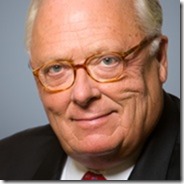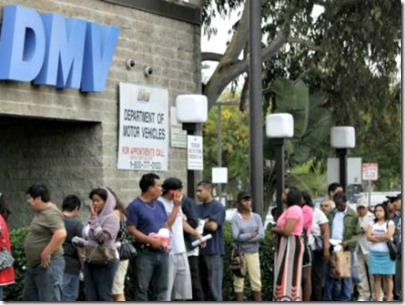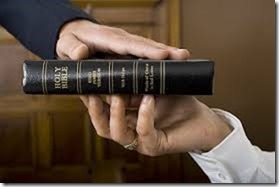All posts by Harvey3
California Just Started Another Insane Government Project
California Just Started Another Insane Government Project
Commentary By
Katrina Trinko @KatrinaTrinko
Katrina Trinko is managing editor of The Daily Signal and a member of USA Today’s Board of Contributors. Send an email to Katrina.
Talk about a trainwreck.
Today, California broke ground on another disastrous government-funded project: high-speed rail that will eventually go from San Francisco to Los Angeles.
The project is estimated to cost $68 billion. The plan is that the private sector will ultimately invest around one-third of the total cost, but so far, there have been no takers.
And it’s no wonder. It’s hard to see how this project makes sense.
Backers say the train will be able to make the trip between San Francisco and Los Angeles in under 2 hours, 40 minutes. However, according to a 2013 Reason Foundation study, it’s likely the trip will ultimately take around four hours (and sometimes closer to five hours) for various reasons (for example, the high-speed train will share tracks with slower trains).
To put that into context, consider this: A flight from San Francisco to Los Angeles is about 1 hour, 15 minutes. Driving, if there isn’t traffic, takes a little under six hours—more time than the train would take, but you also have a vehicle at the end of your trip. (Neither San Francisco nor Los Angeles are cities easy or convenient to navigate via public transit, although San Francisco certainly has more options than Los Angeles.)
So in other words, it’s a $68 billion project to build a method of transit that combines the longer time of driving with the lack of convenience of flying (that is, arriving without a car).
And this is all assuming the full project is completed. Currently, the state has only $12.6 billion—from federal funding and a voter-approved bond measure—ready for the project.
The first steps will lead to tracks connecting Fresno and Bakersfield—two cities that have no public transportation other than buses. It’s hard to see why a big market of people would be looking to take the high-speed train between these two places, which are already connected by highways and train.
Furthermore, it’s possible that the high-speed rail train, rather than making a profit or breaking even, will lose even more money when operating. Remember, that $68 billion is just to build it.
From the 2013 Reason Foundation study:
Even if the system managed to equal European train ridership levels it would hit just 7.6 million rides a year. Thus, ridership in 2035 is likely to be 65 percent to 77 percent lower than currently projected.
As a result of these slower travel times, higher ticker costs and low ridership, California taxpayers should expect to pay an additional $124 million to $373 million a year to cover the train’s operating costs and financial losses.
Heritage Foundation transportation analyst Emily Goff offers yet another possible snag: “It’s typical for big-ticket infrastructure projects like this train to experience cost escalations—of gargantuan proportions. Cue Northern Virginia’s defunct Arlington Streetcar and Washington Metro’s Silver Line. We’ll see any increases in the $68 billion cost reflected in more severe operating losses down the line.”
California’s struggling enough as is. Building a costly high-speed rail train with few obvious consumers is a mistake—and one that will likely cost taxpayers dearly.
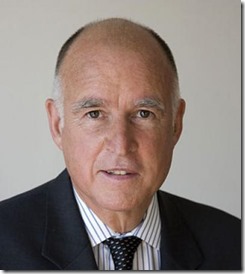
Why Volunteers Make More of a Difference
Why Volunteers Make More of a Difference Than Government
Commentary By Ed Feulner @EdFeulner
Edwin J. Feulner’s 36 years of leadership as president of The Heritage Foundation transformed the think tank from a small policy shop into America’s powerhouse of conservative ideas.
“What can we do to help?”
Americans have been asking this question in one form or another from our very founding. For much of our history, the answer has come in the form of individual efforts, not government programs.
Fortunately, even in the age of big government, Americans still feel the urge to help. They ask what they can do. They volunteer.
They do it, of course, in times of tragedy. After Hurricane Katrina, for example, Americans nationwide opened their homes to families who had lost everything. Hundreds of thousands went to the Gulf Coast to clean up and rebuild.
It’s not just when a crisis strikes that Americans help. They do it in ways that may seem small—volunteering at soup kitchens, donating food and clothing, pitching in to assist a neighbor in trouble—but that make a big difference in the lives of the people they help.
I’ve been concentrating on examples here at home, on ways in which we reach out to those living in the United States, but we also help those outside of our borders. Consider the group called Spirit of America. Founded by entrepreneur Jim Hake, Spirit of America has been described by Gen. Stanley A. McChrystal (former commander of U.S. forces in Afghanistan) as a “philanthropic rapid response team.” Its mission is simple: Find out what our troops and diplomats say they need to assist in building bridges to local populations, and then supply it.
Tools. Blankets. Clean water. Job training. The needs are as varied as the locations, but they all have one thing in common: helping people. Take Spirit of America’s work in Syria. The New York Times recently focused on its efforts to supply independent media there with solar-powered radios ($25 each), and activist Raed Fares and Radio Fresh with warning sirens ($700 each) so that innocent civilians can be warned of attacks by the Assad regime and by extremists.
“The price tag wasn’t why the State Department wanted Spirit of America involved,” the newspaper writes. “The organization could do a project more quickly and on a smaller scale than the government could.” What could be more American? Here we have government basically acknowledging that a group founded by a private citizen can do a better job.
Or consider Spirit of America’s work in Vietnam, where many poor and disadvantaged children drop out of school before sixth grade. A quality education is hard to find there. This summer, Spirit of America spoke with the staff of a new school near what used to be the demilitarized zone between north and south: “As we talked through the best way to meet the needs of the children, it became clear that their greatest need was books. Purchasing English-written children’s books within Vietnam is nearly impossible. The freight cost of shipping books from overseas was a prohibitive, time-consuming challenge for the school’s staff.
“However, with the support of our donors, Spirit of America was able to purchase nearly 100 literary classics for the students. The books, written by authors including Jack London, Dr. Seuss and Judy Blume, arrived just in time for the students to discover them on the first day of the new school year.” There are many other examples from around the world, from supplying cookware to Filipino youths, to improving health care in the eastern European country of Georgia for critically wounded veterans of the campaigns in Iraq and Afghanistan. As Hake told The Wall Street Journal’s Daniel Henninger, “Some will still ask, why can’t government do it all? That is the wrong question. We should be asking: How do we win?”
Exactly. Hake’s group is well-named because this kind of can-do attitude—this practical optimism, if you will—helps define the American spirit. We don’t wait on government. We see what needs to be done—and we do it.
Originally appeared in the Washington Times.
Sheriff McMahon Was Highest Paid County Politician In California
Sheriff McMahon Was Highest Paid County Politician In California
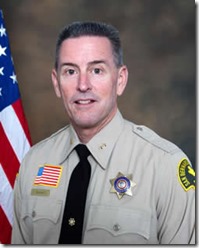
By Venturi
(December 22) San Bernardino County Sheriff John McMahon was the highest-paid county elected official in California in 2013, according to state controller John Chiang. During his first full year in office as sheriff, McMahon received a total compensation package of well over half of a million dollars.
According to Chiang, McMahon received $363,986 in total wages in 2013, which included $225,499 in regular pay, a $121,579 lump-sum for cashed-out leave time following his appointment in December 2012, and another $16,908, described as “other pay,” which covered his car allowance and cell phone usage. In addition to his salary, McMahon was provided with another $170,780 in retirement and health benefits, which included a $114,812 defined benefit plan, a $11,215 retirement contribution, $31,804 in deferred compensation and $12,949 provided for health/dental/vision coverage.
McMahon’s total compensation surpassed that of then-Los Angeles County Sheriff Lee Baca, the state’s second-highest paid elected county official in 2013, with $347,786 in total wages and more than $140,000 in benefits that pushed his total compensation package to roughly $490,000.
The controlling factor that rocketed McMahon to the top of the field among the state’s elected county officials was the $121,579 lump sum for cashed-out leave time he received. The lump sum was for vacation, holiday and sick time he had accumulated before he assumed the sheriff’s position. As an elected official, a sheriff is not permitted to maintain leave balances.
McMahon fared particularly well in 2013 in that San Bernardino County ranks as 23rd out of the state’s 58 counties in terms of pay and benefits provided to employees. San Bernardino County, which employs 21,985, paid them an average of $48,997 in total wages in 2013 and provided them with another $20,321 in retirement and health benefits on average. The state average on per employee pay was $58,521 and $22,546 in benefits.
District Attorney Mike Ramos was the fifth highest-paid district attorney in the state, bringing down $259,451 in total wages, which does not include benefits.
That was par for the course, as San Bernardino County is the fifth largest county in the state. Four of San Bernardino County’s supervisors, none of whom was identified by name, received salaries that ranged from $168,000 to $173,000, which was more than all other supervisors in California except their counterparts in Los Angeles. A fifth San Bernardino County supervisor earned about $163,000.
McMahon was appointed to the sheriff’s position in late 2012 and, running as an unelected incumbent for sheriff this year, was elected to a four-year term in his own right. While the inflated salary and benefits he received in 2013 was shocking to some, there were many other public employees in California who were paid more. McMahon was the highest paid elected county official, but nine unelected county officials throughout the state earned more. And some state of California employees were extremely well paid.
The UCLA football coach was the highest paid state employee in California at $2,639,609. The UC Berkeley football coach was paid $2.3 million. In addition, the chief investment officer for the California Public Employees’ Retirement System was paid $784,616; the senior investment officer for the California Public Employees’ Retirement System received $598,983; another senior investment officer for the California Public Employees’ Retirement System received $592,887; the president and CEO of the State Compensation Insurance Fund received
$587,675; a senior psychiatrist supervisor with the state earned $580,776; a staff psychiatrist with the state earned $546,116; and another senior investment officer with the California Public Employees’ Retirement System earned $541,540.
Chiang released the update to his database on December 15, 2014, adding the 2013 data.
He said it was his intent to provide “the public with a broader picture of public compensation. California must not only restore public confidence that their governments are responsive and accountable, but provide the necessary information and tools to empower citizen participation in civic decision-making,” Chiang said.
CA Illegal Immigrant at DMV: Nobody’s Passing Written Test !Duh!
CA Illegal Immigrant at DMV: Nobody’s Passing Written Test
by Tony Lee 3 Jan 2015 563
Many illegal immigrants at a Northern California DMV reportedly were failing the written exam when applying for driver’s licenses on Friday.
Under the AB 60 law that Governor Jerry Brown (D) signed in 2013 and took effect at the start of 2015, illegal immigrants were able to apply for driver’s licenses on Friday. And nearly 1.4 illegal immigrants are expected to apply for licenses in California in the next three years.
At a DMV in south Sacramento, Veronica Oropeza, a 28-year-old illegal immigrant who has reportedly been driving without a license for six years, reportedly failed her written exam twice.
“Nobody’s passing,” she told the Sacramento Bee in Spanish.
As the Bee noted, “those who passed the written exam were given a driver’s permit and required to return another day to take the road test.”
When Nevada allowed illegal immigrants to apply for licenses last year, 71% of illegal immigrants in the state reportedly failed the written exam in the first three days. Wanting to avoid what happened in Nevada, immigrant groups like the Coalition for Humane Immigrant Rights of Los Angeles (CHIRLA) had provided free test prep classes to illegal immigrants in the final months of 2014.
Oropeza had “already spent more than three hours at the DMV,” and “she couldn’t stay to take the exam a third time, she said, because she had to get to work.”
Read More Stories About:
Copyright © 2015 Breitbart
Why Our Founders Required an Oath to Include ‘So Help Me God’
Why Our Founders Required an Oath to Include ‘So Help Me God’
Bill Federer
Why has the tradition in America been for oaths to end with “So Help Me God”?
The military’s oath of enlistment ended with “So Help Me God.”
The commissioned officers’ oath ended with “So Help Me God.”
President’s oath of office ended with “So Help Me God.”
Congressmen and Senators’ oath ended with “So Help Me God.”
Witnesses in Court swore to tell the truth, “So Help Me God.”
Even Lincoln proposed an oath to be a United States citizen which ended with “So Help Me God.”
On DECEMBER 8, 1863, Lincoln announced his plan to accept back into the Union those who had been in the Confederacy with a proposed oath:
“Whereas it is now desired by some persons heretofore engaged in said rebellion to resume their allegiance to the United States…Therefore, I, Abraham Lincoln, President of the United States, do proclaim, declare, and make known to all persons who have, directly or by implication, participated in the existing rebellion … that a full pardon is hereby granted to them…with restoration of all rights of property … upon the condition that every such person shall take and subscribe an oath … to wit:
“I, ______, do solemnly swear, in the presence of ALMIGHTY GOD, that I will henceforth faithfully support, protect, and defend the Constitution of the United States and the Union of the States thereunder, and that I will in like manner abide by and faithfully support all acts of Congress passed during the existing rebellion with reference to slaves… and that I will in like manner abide by and faithfully support all proclamations of the President made during the existing rebellion having reference to slaves… SO HELP ME GOD.”
A similar situation was faced by Justice Samuel Chase, who was the Chief Justice of Maryland’s Supreme Court in 1791, and then appointed by George Washington as a Justice on the U.S. Supreme Court, 1796-1811.
In 1799, a dispute arose over whether an Irish immigrant named Thomas M’Creery had in fact become a naturalized U.S. citizen and thereby able to leave an estate to a relative in Ireland.
The court decided in M’Creery’s favor based on a certificate executed before Justice Samuel Chase, which stated:
“I, Samuel Chase, Chief Judge of the State of Maryland, do hereby certify all whom it may concern, that … personally appeared before me Thomas M’Creery, and did repeat and subscribe a declaration of his belief in the Christian Religion, and take the oath required by the Act of Assembly of this State, entitled, An Act for Naturalization.”
An oath was meant to call a Higher Power to hold one accountable to perform what they promised. . . . Courts of Justice thought oaths would lose their effectiveness if the public at large lost their fear of the God of the Bible who gave the commandment “Thou shalt not bear false witness.”
New York Supreme Court Chief Justice Chancellor Kent noted in People v. Ruggles, 1811, that irreverence weakened the effectiveness of oaths:
“Christianity was parcel of the law, and to cast contumelious reproaches upon it, tended to weaken the foundation of moral obligation, and the efficacy of oaths.”
George Washington warned of this in his Farewell Address, 1796:
“Let it simply be asked where is the security for prosperity, for reputation, for life, if the sense of religious obligation desert the oaths, which are the instruments of investigation in the Courts of Justice?”
In August of 1831, Alexis de Tocqueville observed a court case:
“While I was in America, a witness, who happened to be called at the assizes of the county of Chester (state of New York), declared that he did not believe in the existence of God or in the immortality of the soul.”
The judge refused to admit his evidence, on the ground that the witness had destroyed beforehand all confidence of the court in what he was about to say.
The newspapers related the fact without any further comment. The New York Spectator of August 23, 1831, relates the fact in the following terms: “The court of common pleas of Chester County (New York), a few days since rejected a witness who declared his disbelief in the existence of God.”
The presiding judge remarked, that he had not before been aware that there was a man living who did not believe in the existence of God; that this belief constituted the sanction of all testimony in a court of justice: and that he knew of no case in a Christian country, where a witness had been permitted to testify without such belief.’” Oaths to hold office had similar acknowledgments.
The Constitution of Mississippi, 1817, stated: “No person who denies the being of God or a future state of rewards and punishments shall hold any office in the civil department of the State.”
The Constitution of Tennessee, 1870, article IX, Section 2, stated:
“No person who denies the being of God, or a future state of rewards and punishments, shall hold any office in the civil department of this State.”
The Constitution of Maryland, 1851, required office holders make “[a] declaration of belief in the Christian religion; and if the party shall profess to be a Jew the declaration shall be of his belief in a future state of rewards and punishments.”
In 1864, the Constitution of Maryland required office holders to make “[a] declaration of belief in the Christian religion, or of the existence of God, and in a future state of rewards and punishments.”
The Constitution of Pennsylvania, 1776, chapter 2, section 10, stated:
“Each member, before he takes his seat, shall make and subscribe the following declaration, viz: ‘I do believe in one God, the Creator and Governor of the Universe, the Rewarder of the good and Punisher of the wicked, and I do acknowledge the Scriptures of the Old and New Testament to be given by Divine Inspiration.’”
The Constitution of South Carolina, 1778, article 12, stated: “Every…person, who acknowledges the being of a God, and believes in the future state of rewards and punishments… (is eligible to vote).”
The Constitution of South Carolina, 1790, article 38, stated: “That all persons and religious societies, who acknowledge that there is one God, and a future state of rewards and punishments, and that God is publicly to be worshiped, shall be freely tolerated.”
Pennsylvania’s Supreme Court stated in Commonwealth v. Wolf (3 Serg. & R. 48, 50, 1817:
“Laws cannot be administered in any civilized government unless the people are taught to revere the sanctity of an oath, and look to a future state of rewards and punishments for the deeds of this life.”
It was understood that persons in positions of power would have opportunities to do corrupt backroom deals for their own benefit.
But if that person believed that God existed, that He was watching, and that He would hold them accountable in the future, that person would hesitate, thinking “even if I get away with this my whole life, I will still be accountable to God in the next.” This is what is called “a conscience.” But if that person did not believe in God and in a future state of rewards and punishments, then when presented with the temptation to do wrong and not get caught, they would give in.
In fact, if there is no God, and this life is all there is, they would be a fool not to.
This is what President Reagan referred to in 1984: “Without God there is no virtue because there is no prompting of the conscience.”
William Linn, who was unanimously elected as the first U.S. House Chaplain, May 1, 1789, stated: “Let my neighbor once persuade himself that there is no God, and he will soon pick my pocket, and break not only my leg but my neck. If there be no God, there is no law, no future account; government then is the ordinance of man only, and we cannot be subject for conscience sake.”
Sir William Blackstone, one of the most quoted authors by America’s founders, wrote in Commentaries on the Laws of England (1765-1770):
“The belief of a future state of rewards and punishments, the entertaining just ideas of the main attributes of the Supreme Being, and a firm persuasion that He superintends and will finally compensate every action in human life (all which are revealed in the doctrines of our Savior, Christ), these are the grand foundations of all judicial oaths, which call God to witness the truth of those facts which perhaps may be only known to Him and the party attesting.”
When Secretary of State Daniel Webster was asked what the greatest thought was that ever passed through his mind, he replied “My accountability to God.”
Benjamin Franklin wrote to Yale President Ezra Stiles, March 9, 1790: “The soul of Man is immortal, and will be treated with Justice in another Life respecting its conduct in this.” Benjamin Franklin also wrote:
“That there is one God, Father of the Universe… That He loves such of His creatures as love and do good to others: and will reward them either in this world or hereafter, that men’s minds do not die with their bodies, but are made more happy or miserable after this life according to their actions.”
John Adams wrote to Judge F. A. Van der Kemp, January 13, 1815:
“My religion is founded on the love of God and my neighbor; in the hope of pardon for my offenses; upon contrition… In the duty of doing no wrong, but all the good I can, to the creation, of which I am but an infinitesimal part. I believe, too, in a future state of rewards and punishments.”
John Adams wrote again to Judge F. A. Van de Kemp, December 27, 1816:
“Let it once be revealed or demonstrated that there is no future state, and my advice to every man, woman, and child, would be, as our existence would be in our own power, to take opium. For, I am certain there is nothing in this world worth living for but hope, and every hope will fail us, if the last hope, that of a future state, is extinguished.”
John Adams wrote in a Proclamation of Humiliation, Fasting, and Prayer, March 6, 1799:
“No truth is more clearly taught in the Volume of Inspiration… than… acknowledgment of… a Supreme Being and of the accountableness of men to Him as the searcher of hearts and righteous distributor of rewards and punishments.”
‘American Minute’ is a registered trademark. Permission is granted to forward, reprint or duplicate with acknowledgement towww.americanminute.com. Bill Federer is available for speaking engagements to large or small groups. Mr. Federer can be reached at wjfederer@gmail.com or by phone: 314-540-1172.
About
#Iimg2#
WILLIAM J. FEDERER is a nationally known speaker, best-selling author, and president of Amerisearch, Inc., a publishing company dedicated to researching America’s heritage. Bill’s AMERICAN MINUTE radio feature is broadcast daily across America and by the Internet. His ‘Faith in History’ television airs on the TCT Network on stations across America and via DirectTV.
© 2014 Freedom Force



